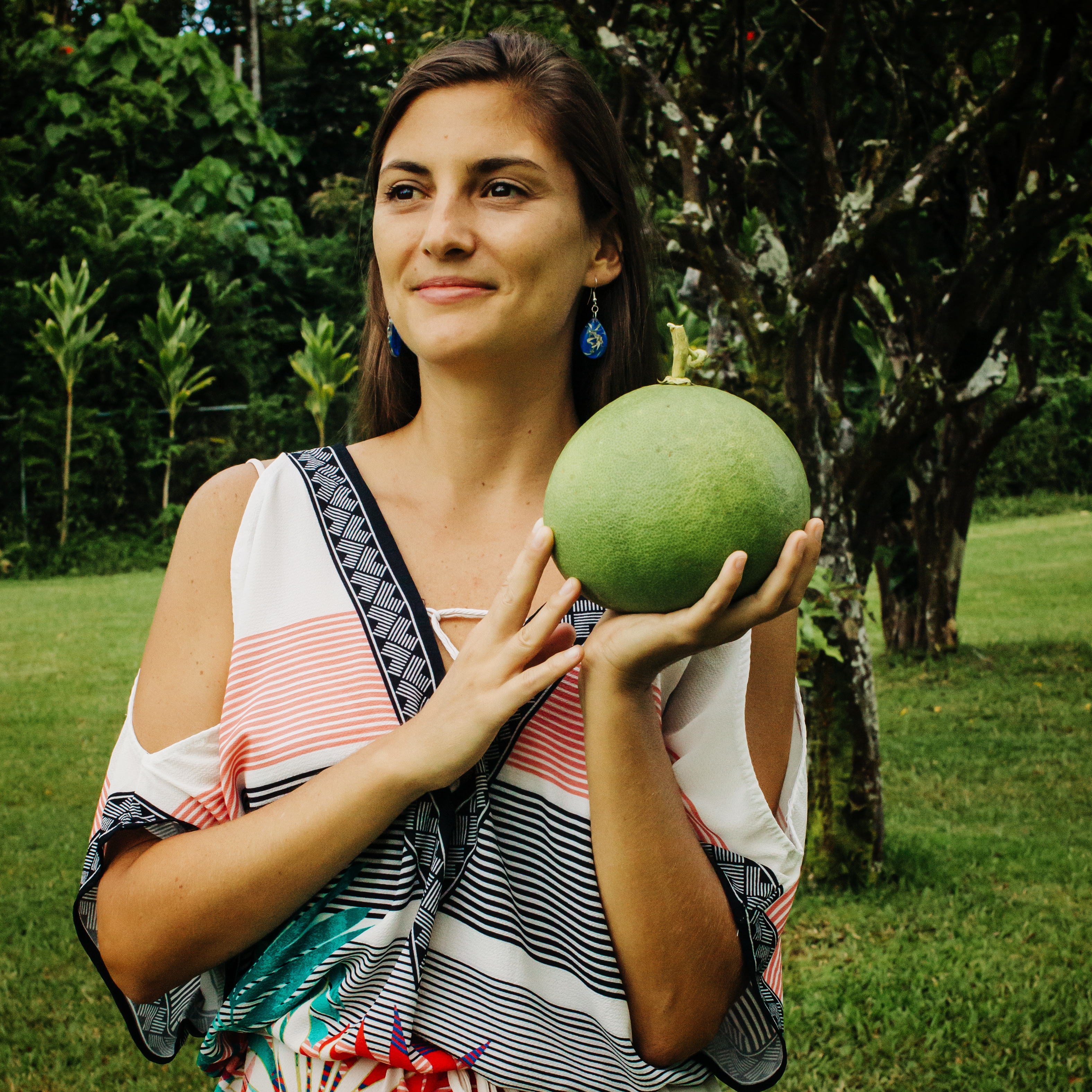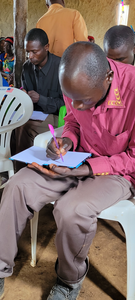Continued collaboration in Rwamwanja Refugee Settlement
- samanthakoches

- Dec 16, 2022
- 6 min read
December 2022
Remember Nourish All's trip to Uganda in June? Well, we couldn't stay away for long. Samantha returned to Rwamwanja Refugee Settlement to support Bemeriki of Rwamwanja Rural Foundation (RRF) on a variety of projects and trainings.
Only have a minute? Watch our 90 second recap below:
I. So mush mushrooms
TRAININGS ON MUSHROOM CULTIVATION Bemeriki kicked off hands-on trainings with two community groups, totaling 30 people. The trainings were comprehensive -- from securing input materials, building community grow houses, packing gardens (plastic bags of substrate), inoculating with spawn, sterilizing and misting, harvesting, sun drying, and selling in the local market. Trainings were structured in a group format to share the labor, centralize growing due to land constraints, and build community.
For any mycellium fans out there, our (rough) technical process was:
Soak cotton husks in water overnight
Drain water and add lyme and corn husks
Pack densely into ~15in long plastic bags and tie ends securely
Sterilize bags (we did this in metal drums over fire for 5 hours)
Add handful of spawn to each end; partially reclose
Store in clean, dark room to allow mycellium to colonize (~2 weeks)
Once solid and white, open ends and spray with water daily
Enjoy mushroom fruits in ~2 weeks!

OUR IMPACT
Over the course of our trainings, we helped the community pack nearly 500 mushroom gardens. Each will yield ~4lbs of fruit which totals... 1 TON of fresh oyster mushrooms! As of today, December 15, the groups have collectively harvested 372 pounds of mushrooms, roughly 40% consumed at home and the rest sun-dried and sold in the local market.

THE MAKING OF A BRAND

One day on a training break, Samantha was doodling mushrooms inspired by a Malama Mushrooms sticker on her notebook (Hawaii-based company who provided her very first at-home grow bag!). One trainee -- a young man named Jilus -- peeked over with an interested eye, and seconds later, he was sketching mushrooms of his own. Behold, the Rwamwanja Mushroom Growers logo was born. We had it digitalized and crafted into a stamp for branding their future dried mushroom products.
STARTING OUR OWN MUSHROOM LABORATORY While RRF has mushroom cultivation down pat, there is one missing link to be truly comprehensive: spawn. In simple terms, spawn are mushroom "seeds"necessary to inoculate growing material such as cotton husks. Creating spawn is highly technical, challenging, and requires extremely sterile conditions. However, by making its own spawn, RRF can greatly reduce costs, operate a sustainable circular economy, and reach more refugees in need.
Both inspired by the powerful potential of spawn, Samantha and Bemiriki spent much time setting up a rudimentary lab and experimenting with various techniques. We created spore prints, brewed a batch of potato-dextrose-agar culture, made a Still Air Box out of a plastic tote, and transferred spores to petri dishes to create mycellium starts.
Sending a big thank you to all the Hawaii mycologists who shared their knowledge: Chase @tropical_fungi_academy, Dave @harvest_garden_hawaii, and Ben @malamamushrooms. Special thanks to Summer @spawntilldusk who donated grain culture that traveled all the way from Maui to Uganda and answered endless questions as we experimented!
WHY MUSHROOMS, YOU ASK?
Oyster mushrooms are an exceptional way to improve food security, nutrition, and livelihoods in resource-constrained areas like refugee settlements. They can be grown on waste materials -- such as cotton husks which are typically discarded in Uganda -- thereby reducing environmental waste and cost of inputs. Mushrooms provide a source of protein, vitamin D, and iron. They contain immune-boosting antioxidants, which are especially beneficial in highly concentrated settlements with poor sanitation, water quality, and health services. Mushrooms grow rapidly (1-2 months to fruit!) and don't require in-ground planting, making it easy for households to grow and reap the benefits quickly. And...they're delicious!
II. Vegetables and banana stalks!?
BACKYARD GARDENS
Alongside mushroom growing, RRF incorporated backyard vegetable gardening into the community group trainings. Bemeriki demonstrated how to construct a keyhole garden made of banana stalks -- a widely available waste material. We filled with rich soil, rocks in the center to aid drainage, and ash from their wood-burning stoves for pest control. We planted vegetables with a special technique: lining the outer edge with onions to detract pests from the more desireable groundnuts, cabbage, tomatoes, collards, and carrots. We also made use of old sacks, planting with cabbage, collards, and herbs.
Each member was then tasked with constructing their own backyard keyhole garden. After I departed Uganda, Bemeriki followed up by visiting the individuals to review their design and gift seeds, watering cans, and spades. These gardens will impact refugee families by providing enough nutritious vegetables for their home consumption and freeing up their meager $3/month UNHCR allowance for other critical needs such as soap or school fees.
SCHOOL GARDENS
Bemeriki was called upon by a local school serving hundreds of children in the settlement to improve their garden design. Often schools provide the only meal of the day for thousands of young refugees. Bemeriki continues to work with the school's student-led Environmental Club to plant a diversity of vegetables beyond their staple maize and to construct a grow shed for oyster mushroom cultivation.
III. Permaculture for peacebuilding
PERMACULTURE TRAININGS FOR PEACE
Bemeriki is a seasoned permaculture educator, having taught hundreds of individuals who have in turn taught hundreds across East Africa. His impact as an educator is truly incredible. I had the honor of witnessing the start of a 2-week intensive permaculture training for a 24-person community group. The trainees began learning permaculture ethics (earth care, people care, fair share -- the precise values of Nourish All) and practical components like garden design, pest control, and water management. But on Day 1 of the training, I was floored when I witnessed the power of permaculture for peacebuilding. This is life-changing, paradigm-shifting stuff, people.
How does it work?
Bemeriki dedicated a full day solely to building connection amongst the group. Bouncing between Rwandese and Swahili, he had the 24 members introduce themselves and their neighbor; a minor facet I thought, but I was promptly reminded that these individuals were displaced from their homes and forced to live amongst a variety of foreign ethnicities. So, no, knowing your neighbor is not an easy task. The group continued by voting for leadership roles, sharing expectations & fears for the course, and agreeing on class rules -- slowly building cohesion. Finally, they broke into small groups for "cultural exchange," each sharing their culture's view on marriage, gender roles, cuisine, and other norms. Coming back together as a whole, their shares were fascinating. My tribe practices polygamy. Mine is monogamous. We honor the jembe (hoe) as it brings food and money. Women in mine can't process meat; it's only a job for men.
The point of all this? To build understanding. From mutual understanding that their cultures are different comes acceptance, and from acceptance comes peace. Rather than allowing conflict to arise from a difference in practices, we can prevent conflict and foster peace through the permaculture ethic of people care.
The light bulb went off in my head, and Bemeriki smiled, knowing I had just understood the true value of permaculture for refugees.
And... that's a wrap on two inspiring, educational, impactful, and vibrant weeks in Rwamwanja. We hope you enjoyed our stories!
Who is RRF again?
Rwamwanja Rural Foundation (RRF), a community-based organization based in Rwamwanja serving refugees across East Africa through permaculture education and livelihood building. RRF is led by an exceptional human -- Bemeriki Bisimwa -- a 15-year refugee himself who is constantly innovating on ways to serve his community. He has transformed his own space at the settlement into a demonstration farm showcasing dozens of varieties of plants, mushroom growing, rabbit husbandry, solar food drying, and water catchment.
From left: Bemeriki Bisimwa teaching; Bemeriki & Samantha with mushrooms; Christian Bwanakawa; Christian filming
Special thanks to Christian Bwanakawa, our very talented video/photographer who joined us in Rwamwanja to capure content for our storytelling and fundraising efforts. Also a refugee from Congo, Christian lives in Nakivale settlement where he shoots and directs short films; captures still images; and teaches youth skills in videography and photography. Be sure to follow his work @christanbwanakwa.
A BIG THANK YOU
Nourish All was able to raise $5,770 (!!) to support these trainings and projects. We are extremely grateful to our generous donors who enabled us and RRF to build food security, nutrition, and livelihoods for refugees in Rwamwanja. Thank you.
















































Comments